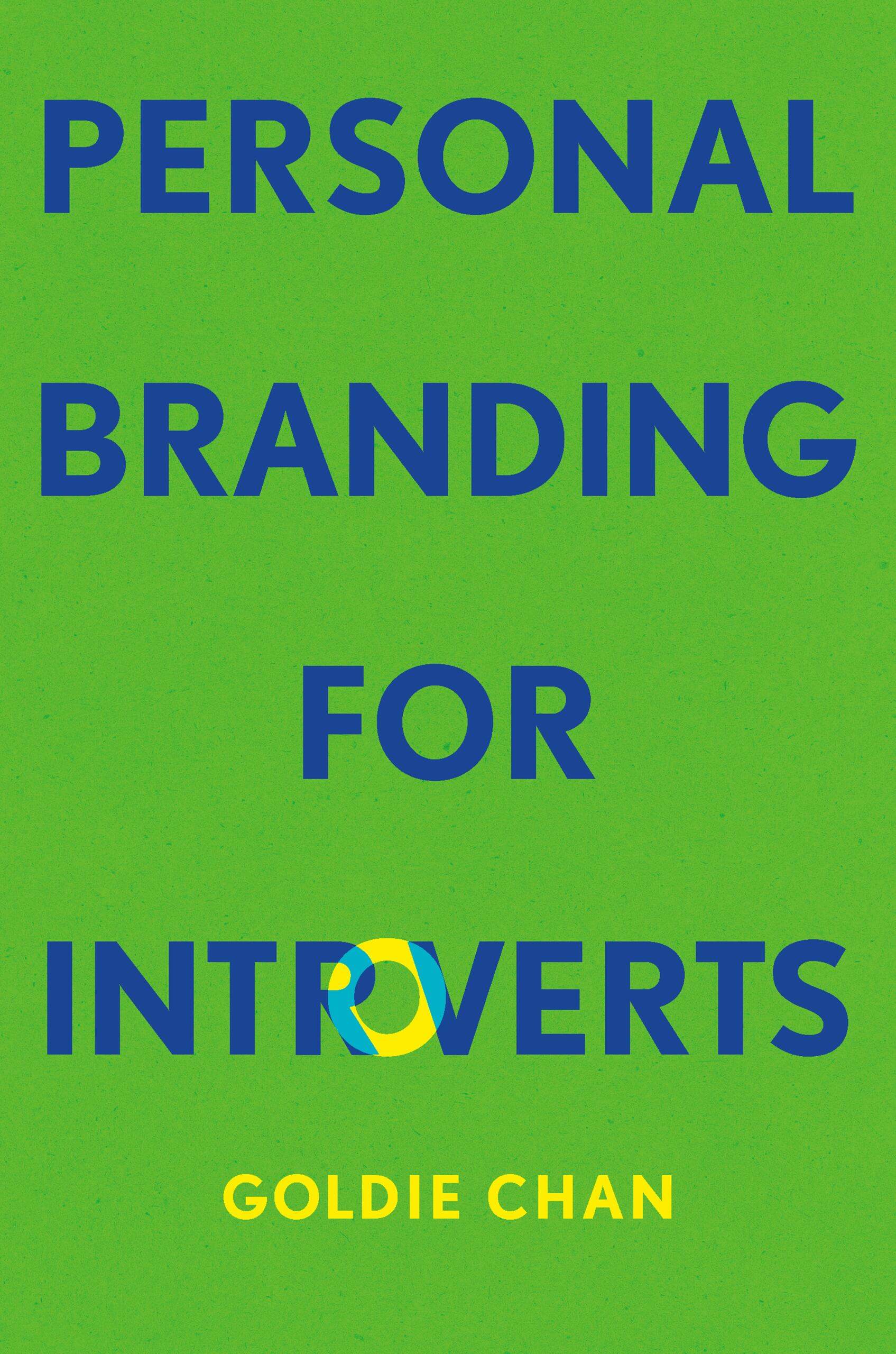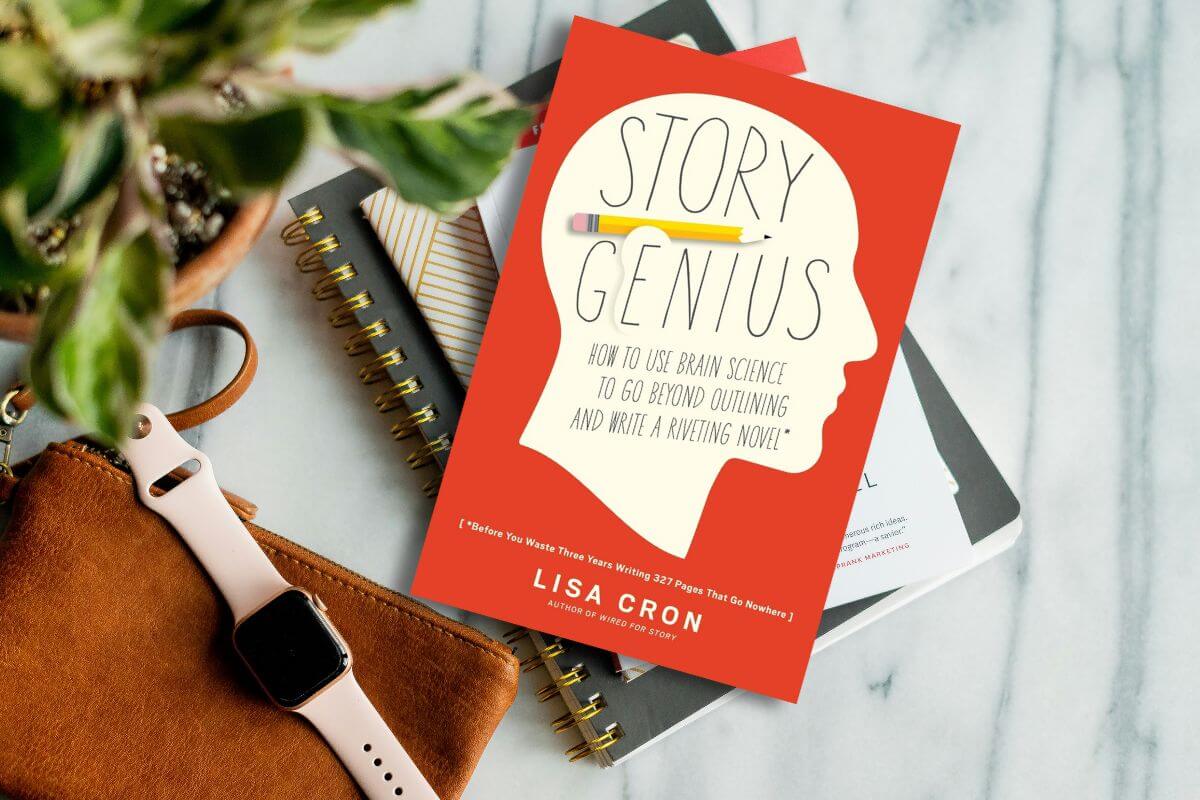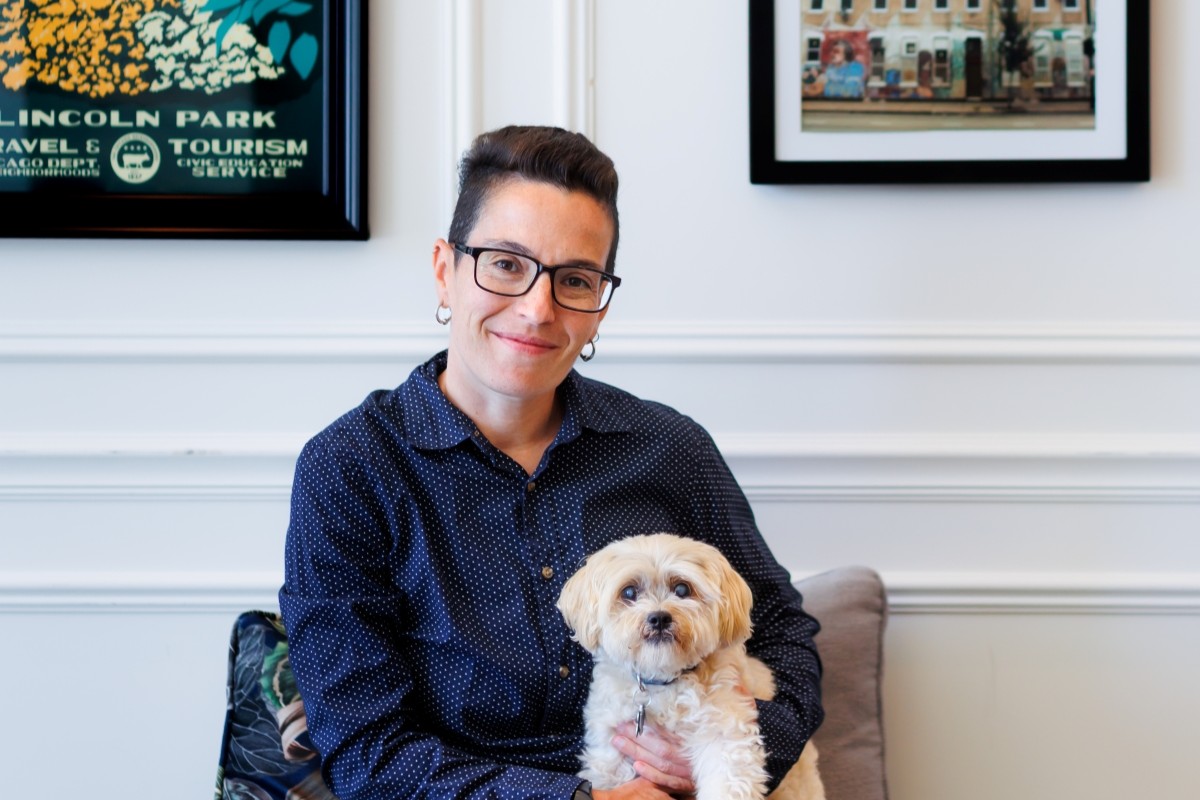Goldie Chan is an introvert, creative, keynote speaker, first-time author, and cancer survivor whose inspiring style of storytelling has attracted nearly half a million followers, earned her the “Oprah of LinkedIn” nickname from the Huffington Post, and won her a LinkedIn Top Voice award for her 100,000-strong video-based community. Living in sunny Los Angeles, she’s the award-winning founder of Warm Robots agency, a former Forbes Senior Contributor with a column that hit 10 million views, an Archie Comics contributor, and soon the author of Personal Branding for Introverts (October 2025), and has been featured in CNBC, The New York Times, Fast Company, and beyond.
If you’re an introvert, you’ll often be the first person in line to tell yourself that you can’t, you shouldn’t or you won’t. These negative impulses (especially in work, career and writing) can be further affirmed by the floating extrovert-forward stereotypes that you have to be very loud to be noticed. But I believe that as introverts, with our wonderful, deep thinking, thorough ability to reflect on our own interests, and keen sense of observation, is what makes us wonderful storytellers, and I’ll share some tips on how you can also begin to share your story as a working writer – without becoming an extrovert.
Why Your Quiet Reflection Is Actually Your Greatest Asset
Introverts pause before speaking. We think things through instead of blurting out the first thing that comes to mind. It’s not a weakness. It’s often the very thing that makes your work stand out.
Many introverts feel self-conscious about how long it takes to craft their thoughts, especially when comparing themselves to faster, more outwardly expressive peers. But this methodical pace often gives writing its authenticity and depth. Extroverted writers seem to effortlessly churn out content while introverts are still sitting there with Post-it notes, slowly mapping out ideas. But I’ve come to realize that this methodical approach gives our writing its authenticity and depth.
Some of the most meaningful stories come from lived experiences, moments that, when reflected on, reveal lessons worth sharing. It’s not about rushing to publish the first thought that pops into your head. It’s about allowing your experiences to marinate until they become something that can truly help others.
That thoughtful process doesn’t come from speed. It comes from deep processing that we introverts naturally do every day. Introverted writers often find it helpful to begin with small notes and gradually build a framework, creating a strong skeleton to support the long haul of a full manuscript. That intentional structure doesn’t happen by accident. It’s built through the reflective thinking that introverts excel at.
We’re Natural Storytellers (Even If We Don’t Always Feel Like It)
There’s this myth floating around that extroverts are the natural storytellers because they’re comfortable being the center of attention. But I’d argue that introverts often make even better storytellers because we’re such keen observers of human nature.
While others are talking, we’re listening. We notice some of those delightful or less delightful subtle emotions that cross someone’s face, the unspoken tensions in a room, the small details that others miss. The observational superpower is helpful when combined with our empathetic understanding. And it allows us to craft stories that make readers feel like we’re speaking directly to their internal thoughts.
In my own writing, I focus heavily on real-life interactions and carefully researched insights instead of simply surface-level observations. This approach has helped me create content that genuinely connects with my audience, because it comes from a place of deep understanding rather than quick wit.
Structure Is Our Friend (And Our Stories’ Best Friend Too)
Here’s something that might surprise non-introverts. We love a good framework. When it comes to writing, especially for business or personal branding, structure isn’t just helpful. It’s essential for creating stories that land with real impact.
While others might wing it or rely on spontaneous inspiration, introverts excel at creating solid foundations for our stories. We’re natural planners! We can turn this specific strength into a powerful storytelling tool.
For a large project like a book, it can help to map out themes and chapters, identifying ‘anchor stories’ or the key moments that carry the emotional weight of each section. I created a work environment that supported my need for quiet focus. It allows me to polish my tone, ground my brand messages, and refine examples until they feel real and helpful.
Clearly defining the purpose of a project from the start helps shape each part with clarity and intention. The very methodical approach worked beautifully for me, and it can work for you, too. You don’t need to rush. Taking time to plan leads to more meaningful, impactful work.
Overcoming the Visibility Challenge (Without Becoming Someone You’re Not)
Let’s address the elephant in the room: visibility and BEING LOUD. Many introverts worry that writing and sharing their stories means they’ll have to become loud self-promoter. I felt this reluctance to be a certain way deeply when I first started putting my work out there.
You get to choose your format, your platform, and your pace. You don’t have to shout from the rooftops or expose yourself to overwhelming scrutiny. Authenticity always wins over volume, and your stories can be powerful even when delivered modestly.
The key is remembering that you don’t have to do anything that doesn’t align with who you are authentically. This mindset has been crucial in helping me build a real and sustainable personal brand that feels true to my introverted nature.
Six Gentle Steps to Begin Your Writing Journey
If you’re ready to start sharing your story but need some practical first steps, here’s what has worked for me.
Start with private reflection
Start with Post-it notes, Notes app or your notebook. Begin capturing your thoughts in a journal or voice memos app. Draw on your personal experiences to find the emotional core of your narrative. Those internal struggles, defining moments, and hard-won lessons you’ve lived through? They’re the raw material for stories that can genuinely help others.
Create a flexible outline
Create the right skeleton! Organize your story into themed sections. Perhaps challenges you’ve faced, breakthroughs you’ve experienced, and the personal philosophy you’ve developed. Let this structure guide you, but always leave room for your story to evolve organically as you write.
Honor your need for quiet
Find the quiet time! Whether it’s enjoying morning coffee in your cozy chair during a silent peaceful evening hours or bright and early, seek out the calm, comfortable conditions that help your creativity flow. These moments of stillness aren’t luxuries. They’re necessities for accessing your best ideas.
Embrace the revision process
Choose the imperfections. Many of us introverts hesitate to share anything less than perfect, but don’t let this perfectionist tendency paralyze you. Share early drafts with trusted friends or editors who can help you refine your message while preserving your authentic voice.
Use your listening superpowers
Be in conversation – ask for honest, thoughtful feedback from colleagues or team members who get your goals. Their thoughts will help you with any writing blind spots and make improvements without losing what makes your perspective work.
Let your introversion shine
Don’t try to cover who you are to fit someone else’s idea of what a writer should sound like or appear like on social media. Instead, embrace your natural calm confidence. Let it guide your creative journey as you write. When you listen closely to your own thoughts and values, you make decisions that feel both powerful and authentic.
The truth is, writing as an introvert isn’t as unpleasant or overwhelming as it might seem from the outside. You don’t need to become someone else to share your story, and you definitely don’t need to mimic extroverts to get noticed. It’s about being yourself. The real, thoughtful, observant you.
Trust your introvert power
Lean into your natural tendency toward your own thoughtful reflection. Be confident in your storytelling and thought leadership abilities, even if that inner critic tries to convince you otherwise. Be yourself and let your work shine through every word you write.
Once you begin this journey, something wonderful can happens. You start moving from “I can’t” to “I can” to “I will.” And that transformation is worth every vulnerable moment along the way.

Personal Branding for Introverts by Goldie Chan
Crafting a professional brand to advertise your own expertise and value is a daunting task alone, but go ahead and double the pressure placed on introverts! Putting on a brave face and forcing yourself to act in a way you know isn’t true to yourself has historically been the way to survive for introverts, that does not have to remain the case. Goldie Chan has mastered the art of personal branding and succeeding in their career– all while being an introvert. By using real examples from successful introverts such as LeVar Burton and Taylor swift as well as the average introvert trying to make their way, Goldie Chan teaches introverts to harness their strengths in areas such as building communities both online and off, in-person networking, setting and achieving goals, and most importantly sustaining their energy long-term. This book is required reading for any introvert looking to progress in their career while remaining true to themselves.
Buy the book now: Bookshop.org | Amazon | Barnes & Noble














Leave A Comment